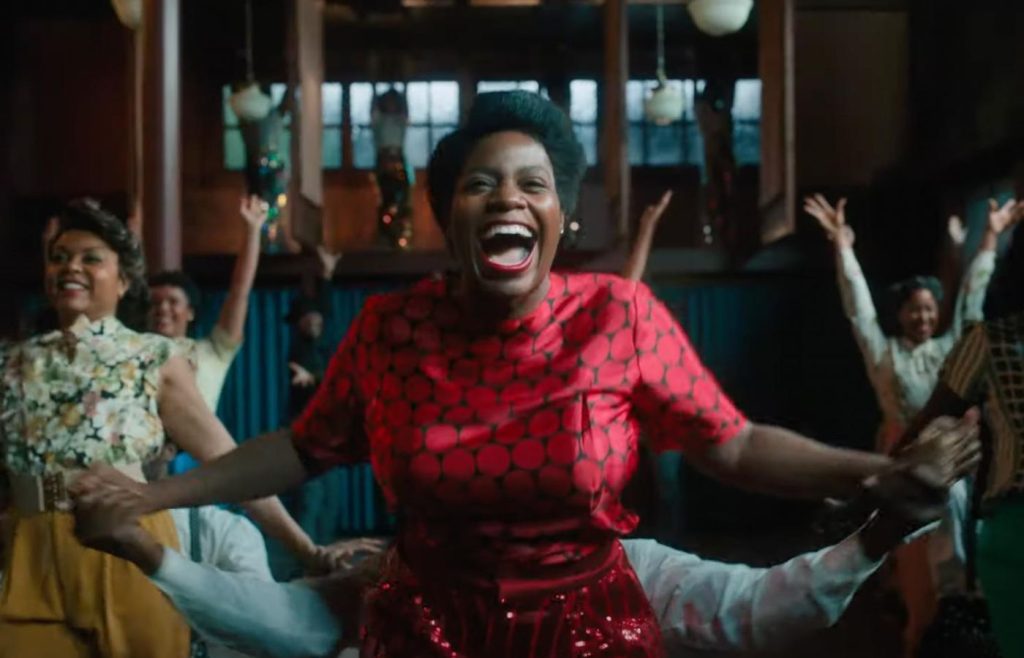
The Color Purple actor's mental anguish after being rejected due to skin tone

The Color Purple star Colman Domingo opens up about his devastating experience of losing a prominent TV drama role solely based on his skin color, leaving him feeling hopeless about his acting career after facing rejection from Boardwalk Empire
Colman Domingo, star of The Color Purple, recently shared that he was denied a leading role in a major TV drama because of his skin color. Despite being over four decades since its release, Alice Walker's novel The Color Purple continues to resonate with fans, having been adapted into an Oscar-winning film and a Tony-winning musical.
The book and its adaptations chronicle the journey of Celie, a young African American woman who, separated from her sister, strives to endure her abusive husband with the support of her many sisterly companions. Recently, a new version of the story has been launched, and Colman Domingo, one of the film's stars, has shared his personal experience of facing discrimination after being denied a significant TV role because of his skin color.
Warner Bros.
Domingo thought acting was over after Boardwalk Empire rejection
During an interview with the New York Times to promote The Color Purple, Colman Domingo, who portrays Celie’s abusive husband Albert “Mister” Johnson, spoke candidly about the emotional toll of losing a significant role on a major TV drama series. Back in 2014, he was auditioning for minor "under-five" roles that only required a line or two of dialogue.
He landed a role on HBO's popular drama series Boardwalk Empire, which loosely portrayed real political figures who controlled Atlantic City, New Jersey during the Prohibition era of the 1920s and 1930s. Domingo auditioned for the role of a maître d’ at a Black-owned nightclub, wearing a tuxedo and wowing the producers with his singing and tap dancing, but ultimately did not secure the part.
After his agent confirmed his successful audition, a historical researcher pointed out to the producers that the nightclubs' maître d's were usually lighter-skinned, and Domingo did not fit that description. As a result, Domingo was informed that "Boardwalk Empire" had decided to pass on him for the role. Domingo later expressed his frustration to his agent, stating, "That's when I lost my mind. I can't take it anymore, I think this is going to kill me."
Domingo nearly quit acting after losing a role, but he learned a valuable lesson from the experience. He shared with the New York Times, "I’ve had many moments where I just needed that little shine or that little push or that extra scene that I know we shot, but decisions were made. It happens. You can shoot a film and do some of the best work of your career, and they leave out three incredible scenes, and you’re like, ‘That could have made me. That could have changed everything.'"
The Color Purple is currently showing in theaters. Be sure to also explore our other upcoming movie and TV hubs below.
Fantastic Four | Avengers: The Kang Dynasty | Avengers: Secret Wars | Marvel Zombies | The Marvels | Agatha: Coven of Chaos | Blade MCU | Captain America 4 | The Boys Season 4 | Avatar 3 | Batman: The Brave And The Bold | Beetlejuice 2 | Blade | Deadpool 3 | Dune 2 | Gladiator 2 | Mission: Impossible 8 | Mortal Kombat 2 | Beyond the Spider-Verse | Superman: Legacy | Thunderbolts | Venom 3 | Wicked | 1923 Season 2 | Citadel Season 2 | Daredevil: Born Again | Euphoria Season 3 | Severance Season 2 | Stranger Things Season 5 | The Last of Us Season 2 | The Mandalorian Season 4 | The Penguin | The Sandman Season 2 | The White Lotus Season 3 | Wednesday Season 2 | Yellowjackets Season 3
Editor's P/S
As a Gen Z netizen, I am deeply saddened and angered by the news of Colman Domingo's rejection from a prominent TV drama role solely based on his skin color. It is disheartening to see that even in this day and age, actors of color continue to face discrimination and limited opportunities in the entertainment industry. Domingo's experience highlights the systemic racism that persists in Hollywood, where roles are often determined by physical appearance rather than talent and merit. It is crucial for the industry to recognize and address these biases to create a more inclusive and diverse environment.
Domingo's story also sheds light on the mental anguish and emotional toll that actors of color endure when facing such rejections. The fact that he nearly quit acting after this experience underscores the profound impact of discrimination on individuals' careers and well-being. It is essential for the industry to provide support and resources to actors of color who face these challenges, ensuring that they have equal opportunities to showcase their talent and achieve success.














